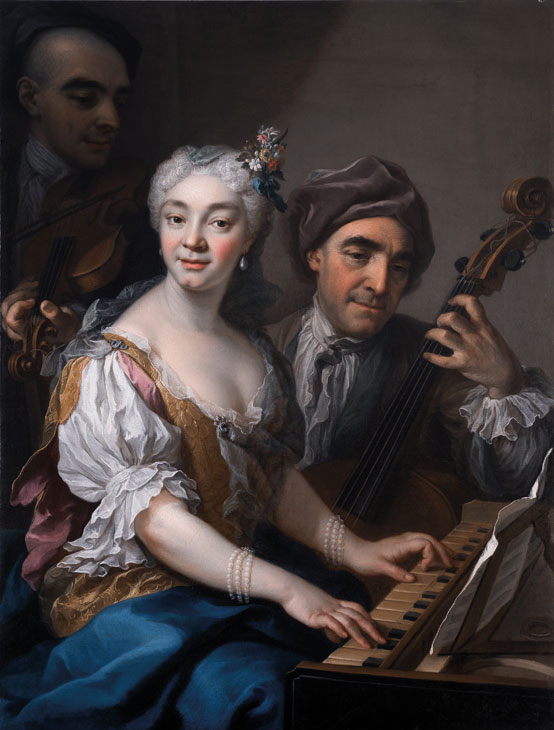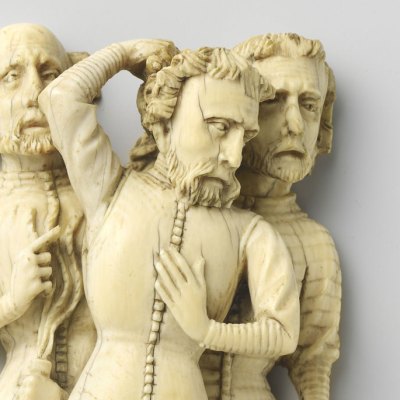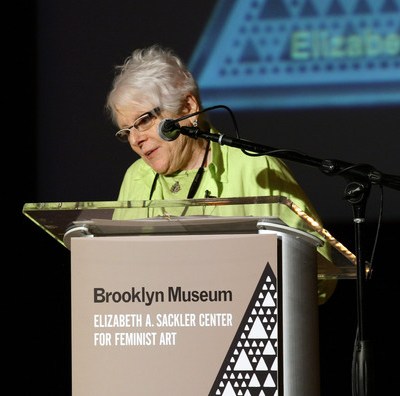For its fifth edition, Flashback has taken a sci-fi turn. This friendly fair, which has always brought a contemporary feel to bear on its presentation of ancient and modern art, returns to the Pala Alpitour in Turin next month (2–5 November) with a theme drawn from the title of Philip K. Dick’s Counter-Clock World. In that novel, time flows backwards, though in a rather more dystopian fashion than any art-fair organiser would hope for; what Flashback’s directors Stefania Poddighe and Ginevra Pucci promise instead is a fair that encourages its visitors to look back at historical art in order to view the present afresh.
At several stands, looking to the past will mean exploring a potent modernist version of the future. Among the galleries bringing works by Futurist artists to the fair are Galleria Frediano Farsetti (Florence), Galleria Russo (Rome) and Galleria dello Scudo (Verona). The latter shows Lampi (Flashes; 1909–10) by Luigi Russolo, the first version of a canvas in the Galleria Nazionale d’Arte Moderna in Rome that sets the power and strange skies of an electrical storm against the subdued cityscape of industrial Milan. A few years later, Russolo would become one of the first modern artists to experiment with noise; and there is a synaesthetic quality to this painting as it depicts the wild colours illuminating an almighty meteorological racket.
Lampi (Flashes) (1909–10), Luigi Russolo. Galleria dello Scudo at Flashback

Meanwhile, Galleria Simone Aleandri Arte Moderna (Rome) displays Giacomo Balla’s dining room, designed by the artist for his house in Rome. This furniture, with the movement implied by its asymmetrical decoration, suggests that even at home the Futurists could not sit still. A perfect dining table at which to perch and enjoy some of those madcap dishes proposed by F.T. Marinetti in his Futurist Cookbook (1932)… Trout stuffed with nuts and wrapped in calves’ liver, anyone?
As ever, there is a strong showing of Old Master paintings, and not only the Italian paintings that one would expect. Galleria Benappi (Turin) brings a portrait of the singer Cristina Somis with her father and brother, painted by Martin van Meytens the Younger and dating to 1728 (Fig. 2). Somis was a celebrated Torinese singer, who would marry the sought-after French portraitist Carle van Loo some five years after this likeness was painted. While Somis takes centre stage at her keyboard, the play of light and shadow on the family members who flank her – and on their instruments – suggests the nuanced harmonies required for both musical and familial concert.
Portrait of the singer Cristina Somis with her father Lorenzo Francesco and her brother Giovanni Lorenzo (1728), Martin van Meytens the Younger. Galleria Benappi at Flashback

Caretto & Occhinegro – a promising young Torinese pairing who specialise in northern Old Masters – presents ‘Copper: The Medium of Flemish Art’, a special project focusing on gem-like oil on copper paintings from the early 16th to the late 20th century. The display includes works by both elder and younger Jan Breughels and by Jan van Kessel the Elder, an artist for whom copper provided a befitting ground for those gleaming natural specimens he so loved to paint.
At the Lingotto Fiere exhibition centre, meanwhile, Artissima returns for its 24th edition (3–5 November) – the first overseen by new director Ilaria Bonacassa. This year, highlights include a new exhibition concept, the ‘Deposito d’Arte Italiana Presente’ (Warehouse of Present-Day Italian Art), which remembers the provisional exhibition space of the same name in which emerging artists showed work in Turin from 1967–68. Piedmont-based institutions, private collectors, and participating galleries will display works chosen to stimulate discussion about the last two decades of contemporary Italian art. The fair also boasts both an additional section dedicated to drawing, curated by Luís Silva and João Mourão, directors of the Kunsthalle Lissabon, Lisbon, and an enhanced digital platform to provide information about works on show. Perhaps the future and the past really are catching up with each other.
Flashback, Turin, runs from 2–5 November.
From the October 2017 issue of Apollo. Preview and subscribe here.



